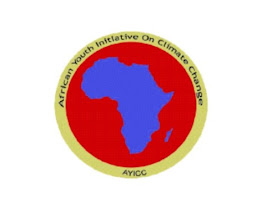COP 19 WORKING GROUP REPORT
Prepared by: Reuben Makomere
Introduction
The COP
19 working group commenced work in February 2013 with the view of achieving 3
goals namely:
1 1. Building the capacity of the
working group and fellow AYICC members with regard to matters related to the
COP and UNFCCC
2 2. Feeding into the specific
policy areas that were to be discussed and decided upon at COP 19
3 3. Seeking ways and means of
enhanced strategic engagement in so far as COP 19 was concerned and beyond.
In
achieving the above mentioned objectives, the working group sought to further
AYICC’s involvement in COP 19 affairs and in the broader UNFCCC process and
enrich the same through various forums right from and including the national
process to the very apex, the international process.
Progress Report
Mechanisms
were set up with a view of facilitating the achievement of the above named
objective. Indeed, an online platform was established, specifically for the
working group that facilitated the sharing of information and establishment of
institutional memory that would enhance the capacity of not just members of the
working group but the greater AYICC. To that effect the platform (http://meetingwords.com/ayicccopwg)
was a tool within which vide strategic partnerships, the COP and greater UNFCCC
process was illuminated. Various other platforms were provided where members
could engage through writing and share their views, in conjunction with other
platforms that were and continue to be availed to the working group.
Various
sessions were held weekly that covered various aspects of the UNFCCC/COP
process, highlighting various tracks and mechanisms within the framework convention
in addition to the limbs and issues therein.
With
regard to contributing to the specific policy processes, it is worth noting
that there were a number of areas within which policy interventions were made.
Much of the progress was made within the YOUNGO framework, where AYICC is a
vibrant member. In this framework there are various working groups which work
in tandem to address and make interventions on key policy processes within the
UNFCCC framework on behalf of young people.
It is
worth noting that involvement and engagement in these working groups was
manifest as early as March 2013 with work being done in working groups
including the Intergenerational Equity Working Group, which managed to have
text included in the final COP19 decision on ADP with regard to mainstreaming
the necessity of safeguarding young and future generations. That in itself was
a key milestone. Other areas where contribution was made include the
Bottom-liners working group which seek to strengthen the global north-south engagement
in so far as matters COP are concerned. It is worth noting that very close
engagements were also realized with the focal points, representing both the
global north and south, noting the key strategic significance, thus being able
to keep abreast and contribute the key agenda items throughout the year,
including the debate on reforming YOUNGO.
In
addition to the above, a lot more involvement was evident with regard to the
local processes in so far as climate change policy is concerned. We were involved
in the preparation process with regard to the country position in the lead up
to COP 1, making interventions and
contributions to the country’s position on various issues. It is anticipated
that more of such engagement will follow, building on the past relationships
that have been created by very able and capable members of AYICC-K over the
years and at various levels.
It is
also worth noting that there were a few setbacks more so with regard to the aspect
of engagement, where we did not see many members engage on the various agenda
areas in so far as COP is concerned. Indeed
this shortfall manifested itself with regard to following issues of the COP
particularly COP-19 where a lot more engagement from more members on the same
was and is always welcome. That is a particular focus area going forth.
Another
key area where lessons could be learnt is the manner of engagement and strategy
for the same. While we made significant progress, it is worth noting that
issues such as actual participation in the COP either as observer or as party
are pertinent and call for renewed strategy with each subsequent year. It is
further worth noting that due to circumstances beyond our control, and despite
having some members accredited, actual physical participation during the COP in
Warsaw was not possible hence negatively affecting the level and scope of our
engagement.
Conclusion
Going
back to whether we achieved the objectives set out herein above, it is worth
noting that there was indeed some degree of success while there were other
areas which require further work, noting the scope of the task at hand. While
we did have meaningful engagement throughout the year vide various mechanisms,
the participation of the members especially through the various platforms availed
and shared remains an area where more work is still to be done more so with
regard to building capacity of the working group in its entirety.
Acknowledging
the significance and the ever increasing space being accorded to the issue of
climate change globally, and the particular importance of the next one year, it
is therefore imperative that going forward, the foundations laid during the
preceding years are built upon to enhance much sharper, concise engagement as
regards matters COP. Sessions on the platform will resume in due course
whereupon further discussions on the issues pertinent to the COP will resume.

Hi! I am henry thomas Great post! Thanks for keeping us updated! Looks like you guys had a great time
ReplyDelete